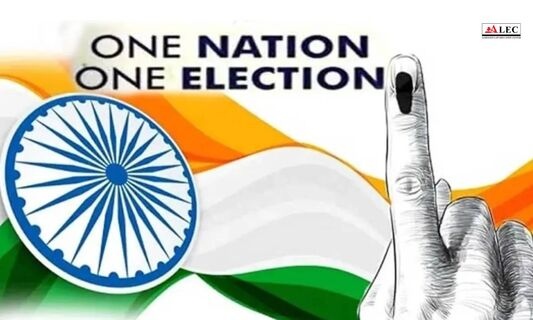On 18 September, Union Cabinet approved the recommendation for One Nation One Election (ONOE) as laid out by a high level committee headed by former President of India Ram Nath Kovind.
Meaning of ONOE.
ONOE is a concept which seeks to hold simultaneous elections for the Lok Sabha, State Legislative Assemblies, Panchayats and Municipalities across the country. The goal is to synchronize all these elections so that they are conducted together, ideally on the same day or within a close timeframe, rather than having separate election cycles for each level of governance as is currently the practice.
History.
The notion of One Nation, One Election was not novel when it was proposed in the 21st century. India, immediately after its independence in 1947, held simultaneous elections for both the Lok Sabha and the State Assemblies. The first such elections took place in 1952, marking the birth of Indian democracy in the modern sense. This practice continued for the next three general elections held in 1957, 1962, and 1967.
However, political instability started disrupting this schedule. These instabilities started in the year in 1971 when the then Prime Minister Indira Gandhi opted for mid-term polls for Lok Sabha for which the general election was not due until March 1972. This was followed by dissolution of various assemblies and the imposition of President’s rule from time to time, all of which led to incongruities in election schedules. Today, there are, on average, five elections every year. Take 2024 for example , in April-May, there was the Lok Sabha elections, and elections in Jammu and Kashmir, Haryana, Maharashtra, Jharkhand are in latter half of the year.
Tracing back the Idea of Reintroducing ONOE.
In 1983, the Election Commission first floated the idea of reverting to simultaneous elections, emphasizing the need to synchronize them for efficiency. This idea gained momentum over the years, and in 1999, the Law Commission of India also recommended conducting simultaneous elections.
The idea gained more traction in 2014, when Prime Minister Narendra Modi strongly advocated for it after coming to power. In 2017, the NITI Aayog released a discussion paper on the concept, outlining its potential benefits and challenges. The concept has since been researched extensively, with the Law Commission examining its feasibility in 2018, recommending certain constitutional and legal changes necessary to implement the proposal. Then on September 2, 2023 the mentioned high-level committee under the chairmanship of former President Ram Nath Kovind was formed and on 18 September the Cabinet approved the recommendations of the committee.
Proposed Amendments.
The said committee has proposed various amendments to Article 83 and 172, as well as the addition of Article 82A. The sum and substance of the amendment is that if the Lok Sabha is dissolved before the full term of five years and if an election is held, it will be only for the balance period of five years. Further under Article 82A, the President on date first sitting of the house of the people after general election will bring into force Article 82A by a notification and the date of the notification will be the appointed date. All the Vidhan Sabhas constituted in any general election held after the appointed date shall come to an end on the expiry of five year term of the Lok Sabha. This amendment can be made by Parliament and may not need ratification by state assemblies.
Conclusion.
The concept of One Nation, One Election represents a bold move toward reforming India's electoral system. While the idea of streamlining elections for efficiency, cost-saving, and stable governance is appealing, it comes with significant logistical, legal, and political challenges. The recent Cabinet approval marks a critical step towards formalizing the debate, but the road to implementation is likely to be long and complex, requiring broad political consensus and constitutional amendments. The ultimate success of ONOE will depend on how well the government balances national aspirations with the needs of local self-governance by Panchayats and Municipalities, state-level governance and ensuring that India's federal structure remains intact while striving for electoral efficiency.
You can also read the latest judgment by visiting [Latest Judgment].
For more information, visit [ALEC Enquiry].

